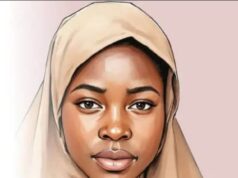
Journalist and journalism teacher, Farooq Kperogi, who has also gained popularity with his acidic critisms of successive governments, speaks on his life as a critic, academic, teacher and as an author in this interview with SAM NWAOKO. The interview was published in Tribune Online. Excerpts:
Why have you refused to see anything good in Buhari and his government?
I am a journalist and a journalism teacher. It isn’t my business to see “good” in governments unless that “good” is extraordinary, which I have never seen. It’s the business of the spokespeople of governments to see “good” in the governments they serve. My business is to hold governments accountable to the people. I have done that to all Buhari’s predecessors, and there’s no reason why he should be an exception.
As I’ve repeatedly said, there’s not a single record in my public commentaries where I ever supported any government in power. I am always critical of all governments in power. So being consistently critical of Buhari isn’t anomalous. It’s what I’ve always done, and about which I put the Buhari people on notice during their campaigns and after they won election in 2015.
For instance, in my April 4, 2015 column titled “After the Euphoria, what President-elect Buhari Needs to know,” I wrote that Buhari’s “relationship with the media would be crucial. The media will get under his skin. Columnists like me will excoriate him, not because we hate him, but because we care, and because we know that to perform well and be in touch with the masses of people who elected him, we need to help hold his feet to the fire. When Thomas Jefferson famously said, ‘Were it left to me to decide whether we should have a government without newspapers, or newspapers without a government, I should not hesitate a moment to prefer the latter,’ he was acknowledging the importance of the media to the sustenance of democracy.
“President Buhari should expect to be scrutinized and criticized and even ‘attacked’ by critical media outfits like the compulsively contrarian Sahara Reporters, which robustly supported him throughout his campaign for the presidency. Recall that the same Sahara Reporters vigorously supported Jonathan against the late Yar’adua’s ‘cabal.’ Before then, it supported Abubakar Atiku against Obasanjo. It will turn against Buhari the moment he officially assumes duties. It’s not personal. Sahara Reporters understands its role as a comforter of the afflicted and an afflicter of the comfortable.
“Many of us share this ‘adversarial’ philosophy of the press and shouldn’t be made to suffer for it. I want to be able to visit Nigeria without being harassed by security forces because I wrote critical articles against the president and his government.”
Nigeria is a very divided country. Do you see yourself a Northerner or Middle Belter, a Baatonu or how would you like to be seen?
Interestingly, the identity categories you mentioned are not mutually exclusive. If anything, they are, for the most part, mutually reinforcing. I am a Baatonu man from Kwara State, which is in Northern Nigeria. My Baatonu ethnic identity is tied to my being from Kwara since the Baatonu people are only found in Kwara in Nigerian Borgu—and in Benin Republic Borgou. Similarly, my being a Northern Nigerian is a consequence of my being from Kwara. What you call the Middle Belt is also constitutive of the North since there was never a region formally designated and recognized as the Middle Belt in Nigeria’s history.
However, the notion of a Middle Belt arose out of a legitimate rebellion by Christian ethnic minorities against a monolithic North that erased their singularities and didn’t give them a fair shake. So it isn’t an entirely geographic category. It’s a geo-religious cum ethnic category, which doesn’t quite capture the socio-historical experiences of a Muslim ethnic minority like me whose natal community is culturally indistinguishable from the far North.
In spite of Nigeria’s endemic fissiparity and instability, I see myself first as a Nigerian before anything else. I am equally comfortable in every part of Nigeria.
Your latest book, Nigeria’s Digital Diaspora, has just been published by the University of Rochester Press. What is the book about and where did the inspiration to write it come from?
The book chronicles the emergence of Nigerian diasporan online journalism in the US and the impact it has had in both the politics of and contemporary quotidian media practices in Nigeria. I explored the factors that conduced to the sprouting of geographically distant but politically consequential citizen media sites Sahara Reporters and genealogized their emergence to the guerilla journalism tradition of the 1990s. I also showed how diasporan online media not only exposed the underbelly of Nigeria’s traditional journalism but also inspired the birth and maturation of digital-native news media operations like Premium Times.
The book also talks about social media and online deliberative practices and how these intersect with Nigeria’s democratic processes and the kaleidoscopic contours of Nigeria’s media practices.
All of these hadn’t been systematically captured in the scholarly literature. That’s the first motivation for writing the book. The second inspiration comes from the fact of my being a journalist, a journalism educator, and a US-based Nigerian with deep experiential encounters and involvement with the variegated, endlessly changing patterns of Nigerian diasporan engagement with the homeland.
Diaspora online journalists are perceived in official and in certain political circles as subversive. You don’t think such views could be correct given what you in particular write almost on daily basis, merging diaspora journalism with social media activism?
Well, not every diasporan online journalist is subversive or adversarial. Many are not. My book talks of diasporan journalists who are in bed with governments, who started out as advocatorial, anti-corruption muckrakers but who later compromised and cashed out, and so on.
Of course, it’s also true that some diasporan online journalists hold the feet of wielders of power to the fire, mostly because the homeland news media formation has become uncharacteristically quiescent, even complicit, in the face of the most brutal suppression of basic democratic liberties in the country.
The impassioned involvement with the politics of the homeland by a lot of people in the diaspora is often animated by the desire to inspire the replication of the good things we see in our host countries. That can come across as “subversive” to me people who are wedded to the habitual ways of doing things, to the systemic misgovernance in the country.
But I frankly don’t see anything subversive in wanting transparency, good governance, accountability, rule of law, and other core precepts of liberal democracy in Nigeria.
The advent of the internet has inaugurated what communication scholars have called the death of distance. In other words, the internet has blurred the time-honored boundaries of time and space. Being physically away from the homeland to a diasporic location no longer imposes the sort of temporal and geographic limitation it did years ago. So the online journalism and social media activism of the diaspora are increasingly merging seamlessly with those of the homeland. I think that’s a good thing.
Can you please explain the cover picture/drawing? What message are you conveying through it?
The cover image was designed by my teenage daughter, Sinani, who has incredibly precocious artistic talents. My contract with my publisher said I was responsible for the book’s cover. When my daughter heard me agonizing over getting a good artist to design the book cover for me, she offered to do it. I told her what the book was about, and she took a couple of hours to design it.
I presented other cover designs, but the Rochester University Press’ production department liked my daughter’s design the most. The cover image basically captures the essence of the book, that is, the social-media-enabled deliberative encounters of Nigeria’s vast, connected online public sphere.
You write with so much ‘venom’ against the Buhari government. Some would say you are this bold because you are abroad, a diaspora commentator. Others would say being a Baruba/Baatonu, your father or grandfather must have fortified you spiritually growing up. How would you react to that?
Again, what you called my “venom” against Buhari isn’t unique to him. I poured the same “venom” over Jonathan, Yar’adua, and Obasanjo.
It’s certainly true that being outside of Nigeria provides me with some insulation against the consequences of criticizing intolerant and brutal regimes like Buhari’s and, perhaps, induces my boldness, but people who know me would also tell you that I would rather be dead than suppress the truth for fear of the consequences of telling it. It’s a trait I inherited—perhaps unconsciously learned—from my father. My name, Farooq, means one who distinguishes truth from falsehood.
No, no one has fortified me with anything. Although my father was an Islamic cleric and Arabic teacher, he spent his lifetime fighting against superstitions, such as the idea that one can be spiritually fortified. He was very materialist for his time and exposure.
When I was growing up with him, people would come to him and plead with him to give them the magical potion they said he gave me to make me excel in school, and he would always tell them that there was no such thing as a magical potion that could mysteriously activate dormant cognitive abilities. A particularly persistent guy didn’t give up, so he told him to come back the following day. My dad told me to scribble the first verse of the Qur’an on a wooden slate and wash it off into a bottle.
When the persistent guy returned the following day, my dad gave the bottle to him. He told him to drink it periodically but added that the side effect of the magical brain-enhancing potion was that if he didn’t study every day, he would run stark raving mad.
At the end of the term, the man’s performance improved dramatically, so he came to give my dad money for his help. My dad declined his money and told him his improved performance had not the slightest connection with what he thought was a magical potion. He told him it was because he dutifully studied every day out fear of running mad and pointed out that what he drank was just the first verse of the Qur’an that I wrote, that I had not myself drunk, and that had no capacity to make anyone smarter than they really are. He said he wasn’t interested in his money and implored him to invest his time in his study instead of looking for superstitious shortcuts to success.
That’s the kind of man that raised me and influenced my outlook in life. I grew up with a deep suspicion of metaphysical claims and a rebellion against superstition.
Back to your book, why did you decide to publish it abroad. One would expect a critic like you to lay a good example by patronizing Nigerian publishers, helping them to grow that sector.
Well, it’s because I live and work abroad. As I pointed out in a column when I published my first book, I am a university teacher at an American university. If I must get credit for my hard work, I must be published by a reputable academic publisher in America—and Europe. That means I must publish the book with an academic publisher that will send my manuscript first to an internal board of expert reviewers and later to at least three experts in the academe who must critique and approve—or decline— it before a decision about publication can be made. In American academe, you don’t get credit for self-publishing or for publishing with vanity presses.
Unfortunately, the University of Rochester Press has no bookstores in Nigeria that I am aware of. And this strikes at the core of the knotty, abiding contradictions of the scholarly production of Third World intellectuals located in the West. We produce knowledge about our home countries in Western centers of learning. Our scholarly output then enjoys high social and symbolic capital because it is vetted and circulated in the West, but the people about and for whom the scholarship is done have only marginal or no access to it. This is personally distressing to me, but I am helpless.
The good news, though, is that the book can be bought on Amazon.com and other online bookstores. I am also delighted that the Pan-African University Press in Lagos has taken off strongly and publishes great scholarly books. I am considering publishing my next book on English grammar and usage with the press.
Finally, you would have some words for Nigerian journalists, online diaspora media people and your friends working as media aides of government officials. What advice would you offer them from your experience teaching journalism in a developed democracy?
For my journalist friends, I would simply say the job of journalists is to hold governments accountable to the people, to comfort the afflicted and the afflict the comfortable, not to mollycoddle them or be their informal publicists. Power, by its nature, intoxicates whoever wields it, and it’s the abiding, historical duty of journalists to ensure that power-intoxicated politicians don’t get away with excesses that can transmogrify into fascism.
For my friends who are media aides to government officials, my advice is that they should have direct, unhindered access to their principals and understand their roles as explainers of the policies of the governments they serve and not unthinking attackers of their critics.
The problem with crude, abusive political public relations, as I’ve pointed out in previous writing, is that it only excites and fires up supporters who don’t need it because their loyalty is already in the bag, but repulses opponents and puts off people on the fence.
The object of public relations, especially political public relations, is to arm supporters with the ideational resources to defend you, to win over people who sit on the fence, to persuade opponents to see you as a reasonable person worthy of their respect, etc.
Public relations, real public relations, isn’t about bribing news and opinion page editors of newspapers and planting coarse, vulgar abuses against perceived political opponents, nor is it about writing immature smears against critics of governments.







Can you be more specific about the content of your article? After reading it, I still have some doubts. Hope you can help me.